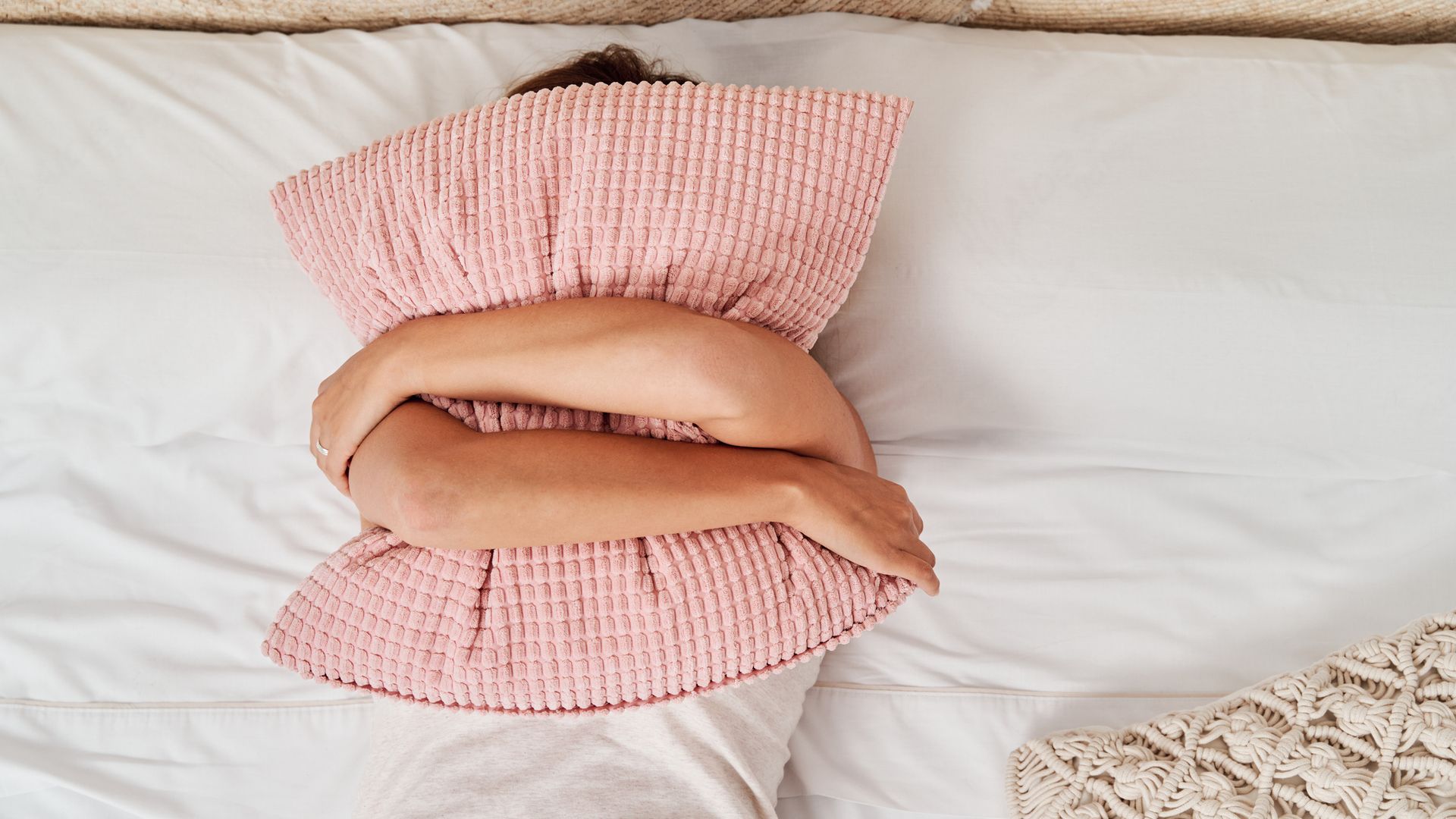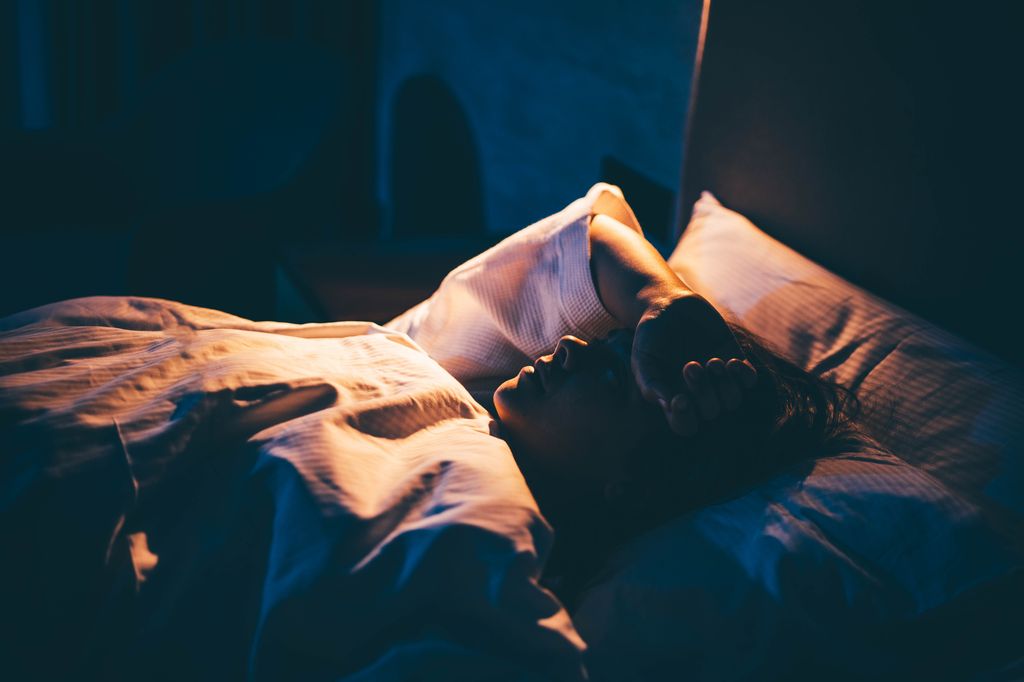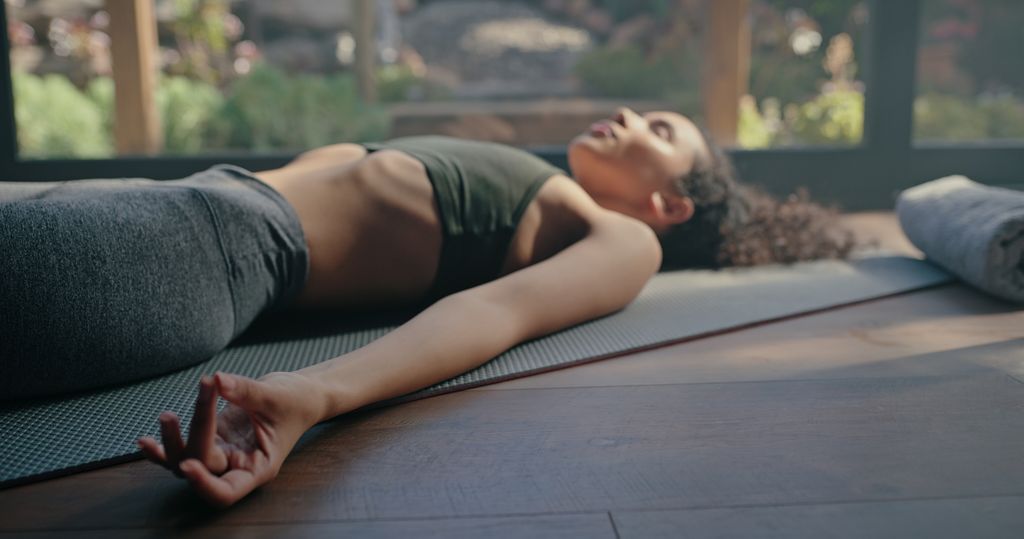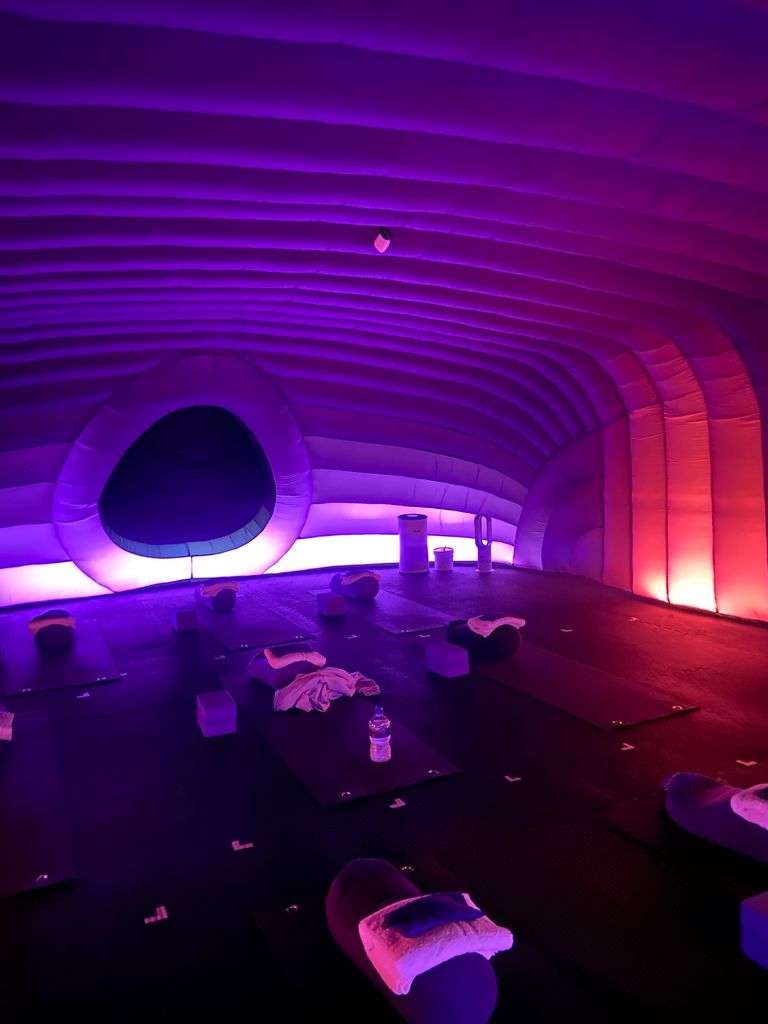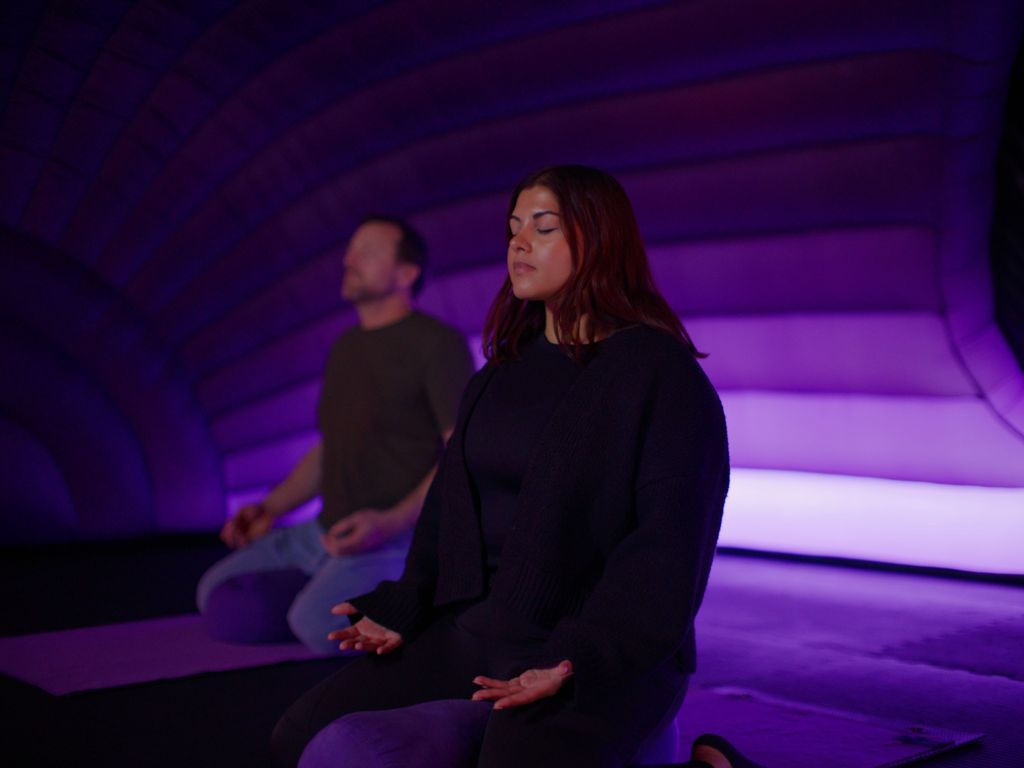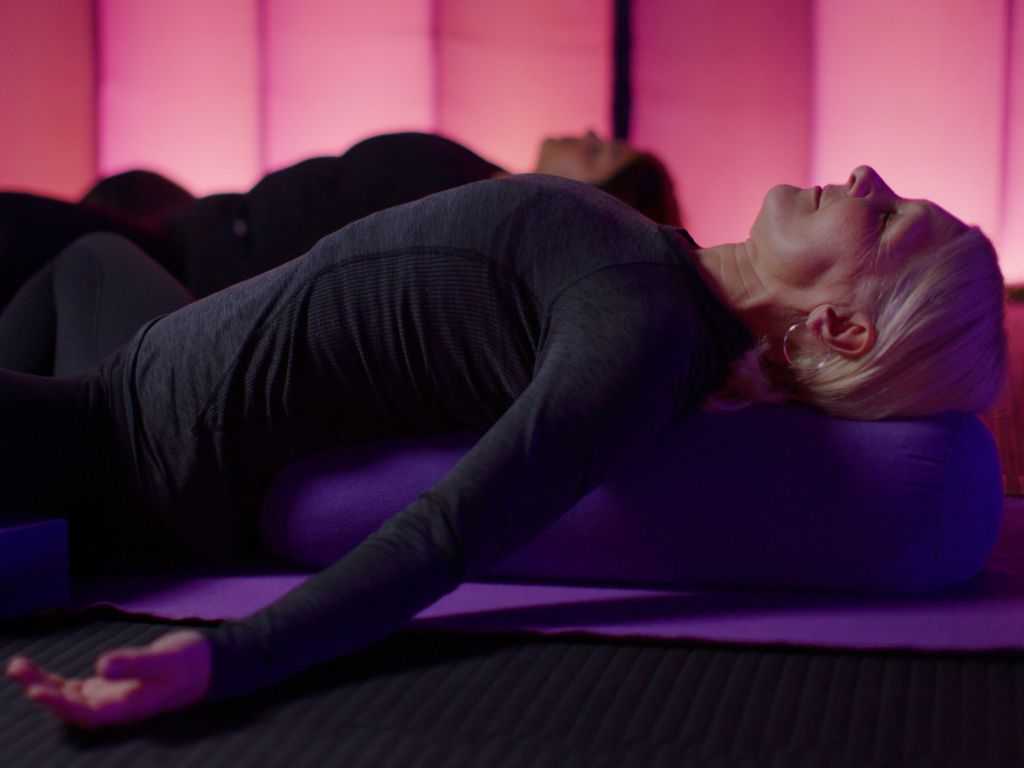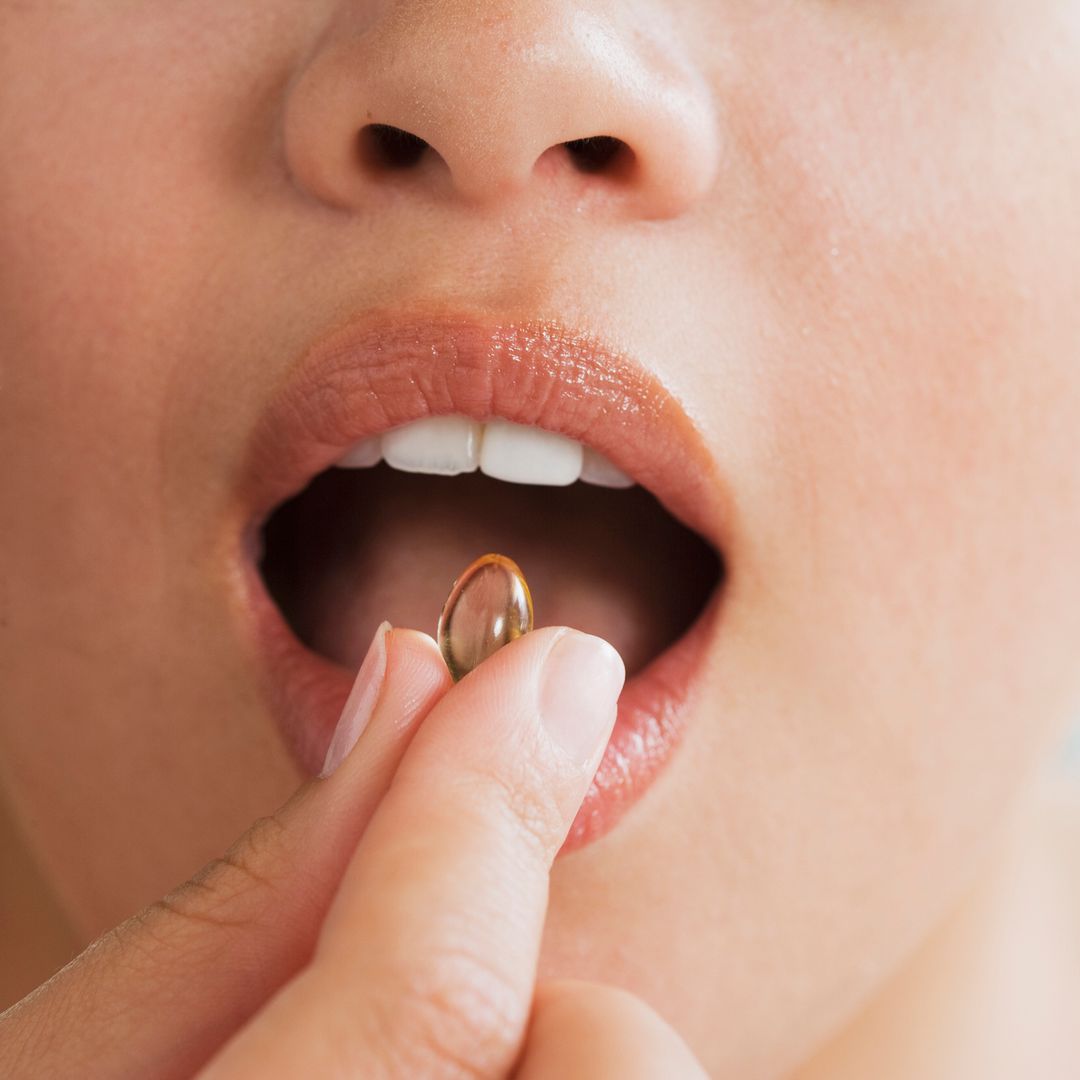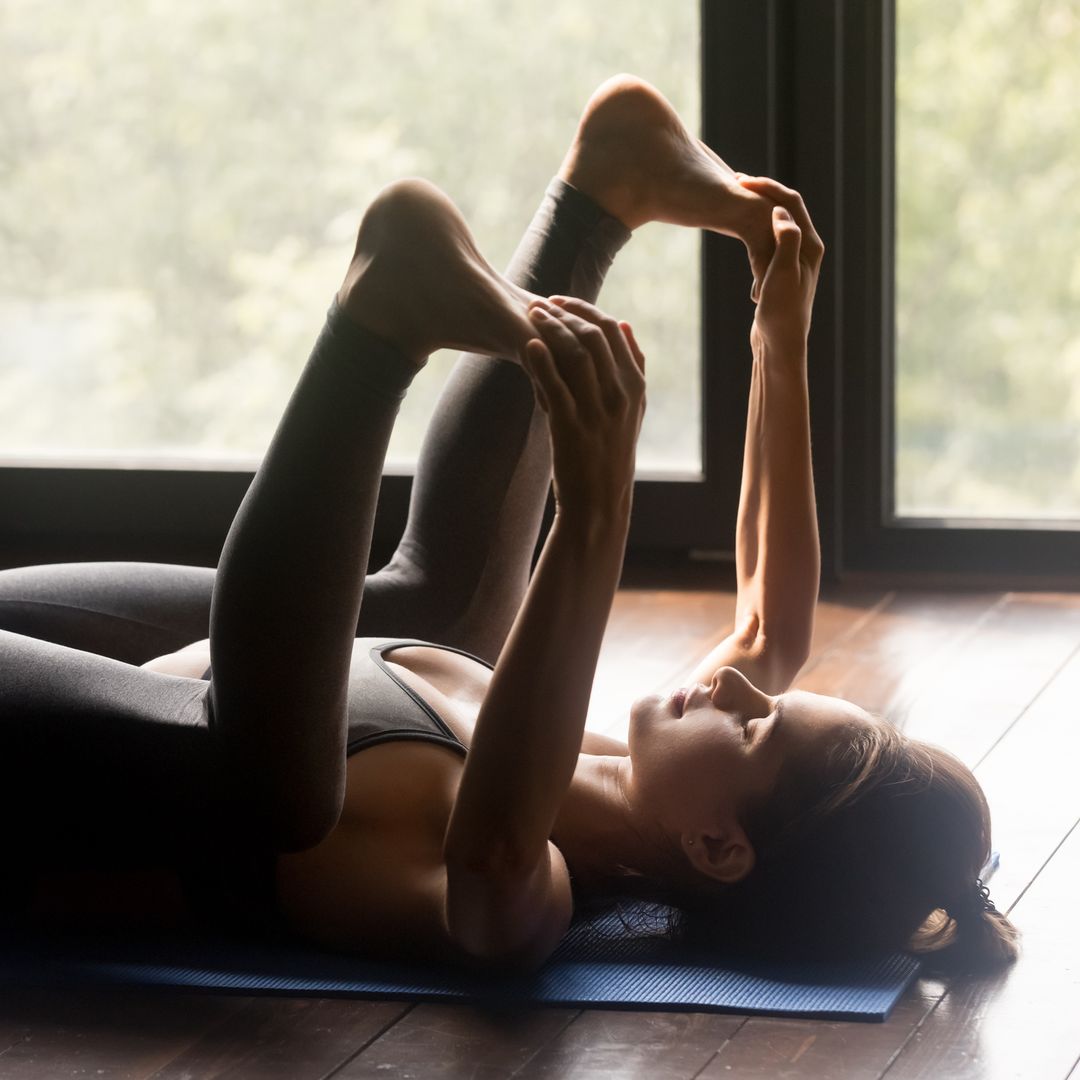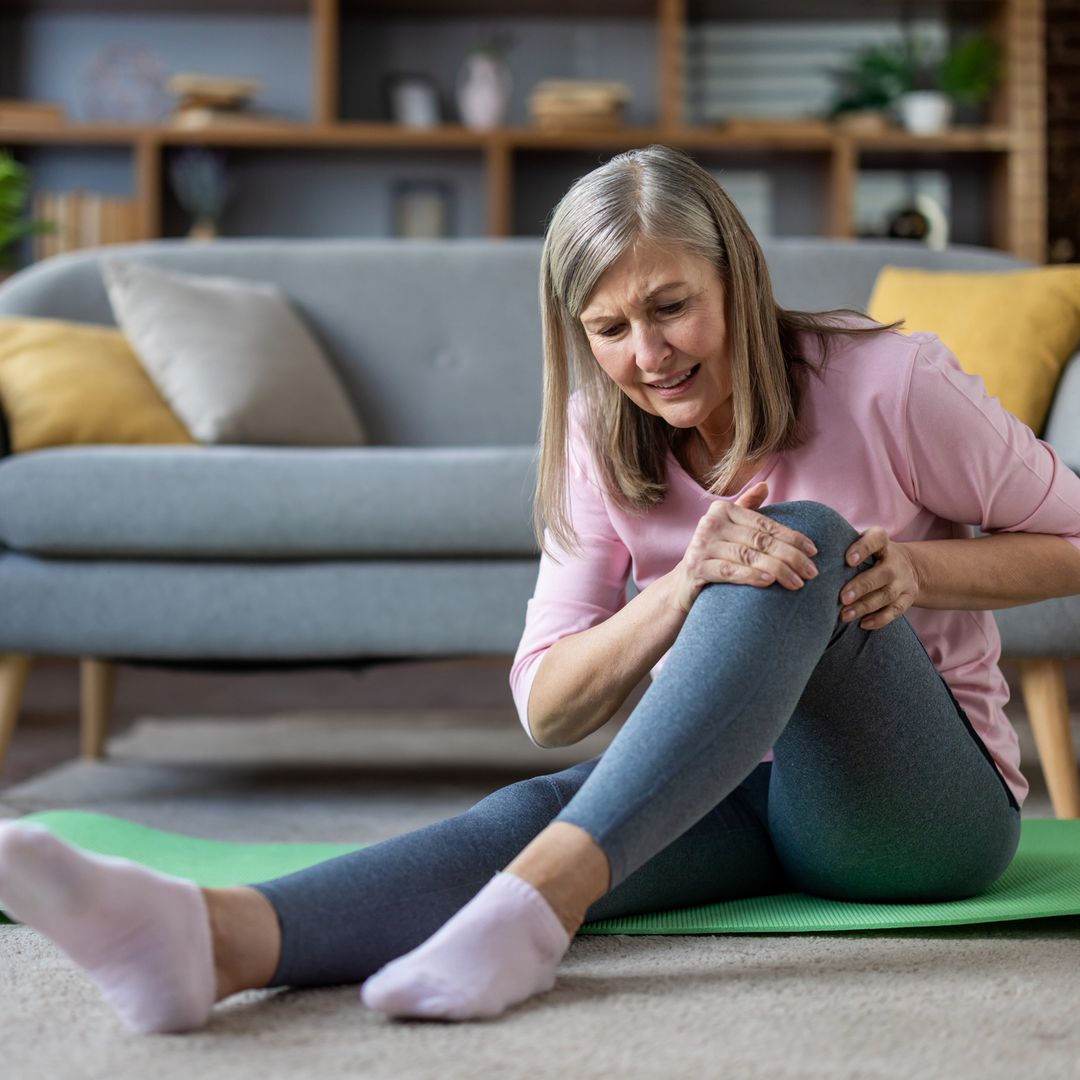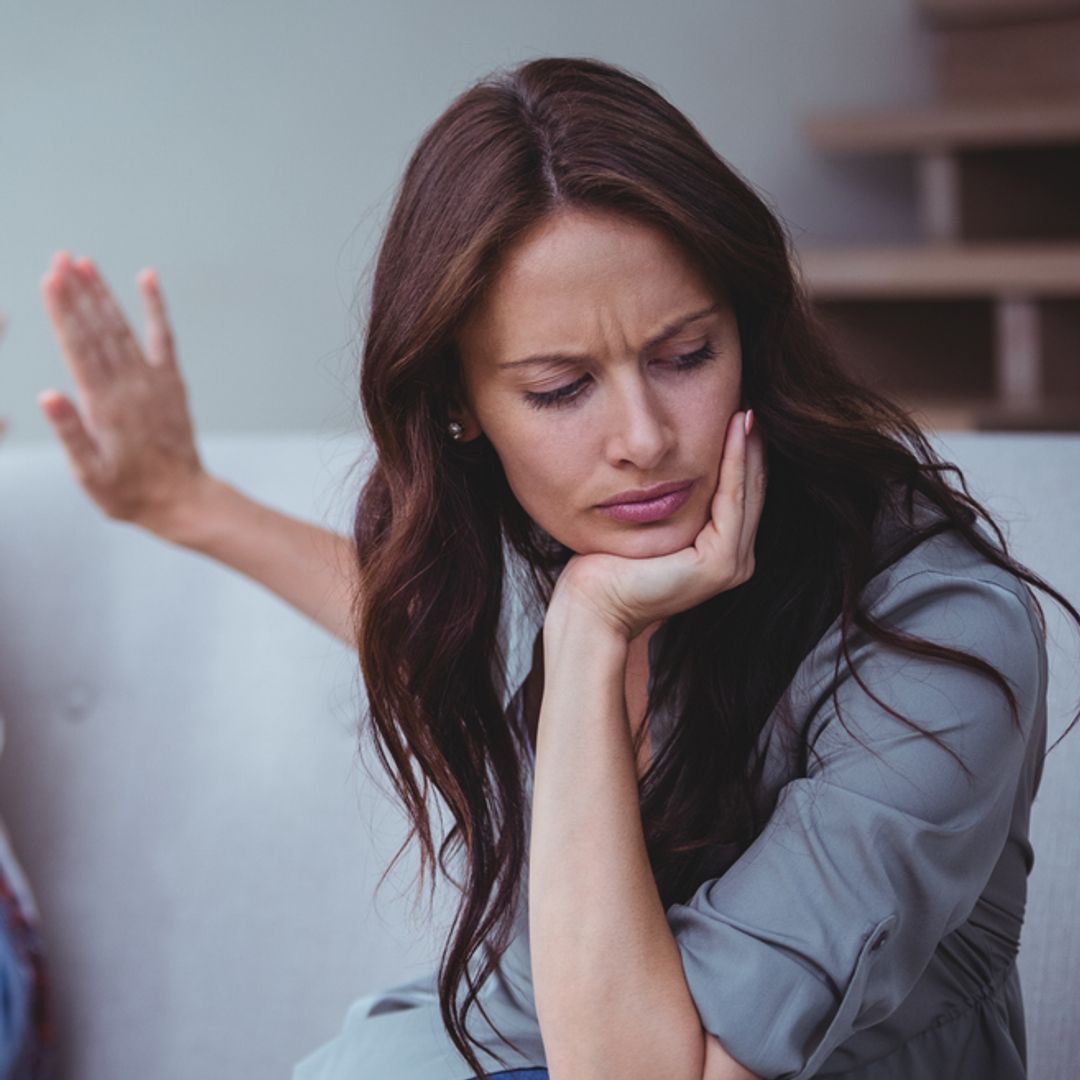I'm bad at sleeping. Plagued with endless nighttime wakings (up to 10 a night) or suddenly jolting awake at 3 am and being unable to drift back off, it’s sadly been years since I've slept through the night. This has led to an obsession with monitoring my sleep profile using my fitness tracker and even more early awakenings as good quality sleep continues to evade me.
A new study by Hotpod Yoga found the average person gets less than six hours of sleep during the working week, while 69% agree that they would like more sleep and 76% want better quality sleep. “Many people struggle to switch off at night or wake up in the early hours with a racing mind. Chronic stress and poor sleep can push us into a chronic state of hyperarousal; we get stuck in ‘fight or flight’ mode," says Sleep Scientist, Dr Sophie Bostock. The benefits of gentle exercise like yoga are not to be underestimated, however. Dr. Sophie explains: "Yoga combines physical movement, breathwork and meditation techniques which develop the skill of deep relaxation."
In aid of World Sleep Day, I put Hotpod Yoga's brand new Sleep Sessions class to the test before it's rolled out nationwide on March 31. But would it finally make me able to sleep through the night?
Why am I sleeping so badly?
Circadian rhythm disorders
The first port of call should be checking your circadian rhythm isn't out of whack – the body's internal 24-hour clock that regulates cycles of alertness and sleepiness by responding to light changes.
Routine is key, as Dr. Sophie says: "A lack of routine disrupts your body's ability to predict when you're going to sleep. If you go to bed at a similar time each night, like clockwork an hour and a half before your normal bedtime, the brain will start to produce melatonin, signalling to the rest of the body and the brain that it's time to prepare for sleep."
Natural light
The second main culprit is not getting enough natural light during the day. Easy enough to say, but with our busy modern lifestyles and many of us working from home post-pandemic, even stretching your legs for 20 minutes at lunchtime can feel impossible.
Dr. Sophie says: "A lot of us don't spend enough time outside and we need clear, quite bright lights to reset our rhythms. If you're not actually moving to the office, for example, you're not sending that morning message to the brain, and you can be in a state where melatonin lags in the morning and you feel a bit sluggish, a bit sleepy. Hours later, the brain's not ready to sleep because it didn't know when daytime was in the first place."
I used to enjoy a pre-work morning power walk and reaped the benefits sleep-wise, but the winter months have seen me turning my alarm off and pulling the covers back over my head. I'll be heeding Dr. Sophie's advice in the future.
Poor diet
Diet should be your third port of call for improving sleep. After cutting back on drinking, I can safely say that alcohol isn't a factor in my poor sleep (in fact, the only time I sleep deeply is at the weekend after a couple of glasses of wine). Branding it a "hot topic" for future research, Dr. Sophie explained that diet can affect sleep, particularly if you're consuming high sugar, high-fat and low-fibre foods late at night.
RELATED: Is this bedtime habit ruining your sleep?
"Generally speaking, a Mediterranean-style diet of fruits, vegetables, pulses, nuts and things which are going to feed that microbiome, seems to be better for sleep. Whereas ultra-processed foods are more likely to disrupt sleep," she advises.
Hormones and stress
You should rule out hormonal and blood sugar changes too; menopause and diabetes can be major factors if you're tossing and turning late at night, not to mention stress. "Cortisol and melatonin are like enemies for each other, so high levels of cortisol reduce or delay the impact of melatonin," she says.
Sleep Session experience
Exercise is the final piece of the puzzle. As someone who enjoys spin classes, hot yoga and barre/Pilates workouts as well as gentle strength training from home, I would say that I'm well within the weekly recommended quota of movement. But could a gentler form of yoga really aid sleep?
DISCOVER: Orthosomnia is on the rise – what are the symptoms and how do you cure it?
Benefits of yoga for sleep
The benefits of yoga are well known for your mental health and physical health, but its effect on your snooziness shouldn't be underestimated. Dr. Sophie says: "Research shows that yoga helps people to gain awareness and a sense of control over their minds and bodies, and there is evidence that regular yoga practice can help to improve not just strength and flexibility, but also immune function, mental health, sleep quality and overall wellbeing."
Set to a balmier temperature than Hotpod's usual sweltering 37 degrees, the purple pod's calming, warm space helps you drift into a deep state of relaxation.
As a big Hotpod fan, I was intrigued to see how the class varied from my usual weekly sweat session, which always leaves me feeling relaxed and in a positive frame of mind. We began with some gentle stretching, before lying on our backs in a gentle backbend, focusing on calming the mind. The class finished with Yoga Nidra, during which our lovely teacher guided us through a visual meditation.
My mind began to wander, but with the addition of a lavender-scented eye mask blocking out the light and aiding deep relaxation and calming words, I actually found myself drifting off to sleep in the class. I've rarely been able to achieve such a level of total comfort in a room full of strangers.
It's all in the breathwork, apparently. "Learning to control your breath and the stress response [is important] as there have been studies looking at immune function because if you're not in a perpetual state of stress, then you start to switch all those restorative processes that have been downregulated by the stress response," she adds.
The verdict
Confessing how surprised I was by how sleepy the gentle session made me, Dr. Sophie said the relaxing environment of the purple pod, dim lighting, and restorative music are key.
Sleep Session additions like using a towel as a pillow and a bolster cushion to support your back and knees add to the experience, not to mention the eye mask, helping ease you into a soporific state.
"Your brain has to believe that you are safe and secure, and then therefore it's OK to relax," Dr. Sophie explains. "But if your brain has a history of other nights where you've sat there feeling tense, then it can be quite difficult to do that. By taking yourself to another space where you really feel safe, it will be easier to re-enter that state - it's reawakening that parasympathetic response saying it's perfect for sleep.
That night, I slept better than I had all week. While I sadly woke up at 5 am, wide awake and alert, I experienced fewer nighttime awakenings than usual and drifted off to sleep very quickly. My body felt safe enough to relax after my earlier class - and the benefits will only be greater the closer you practice to your bedtime. I can already see myself booking Sunday evening sessions as a pre-emptive stress buster ahead of a busy working week.
While the science can't yet prove that hot yoga can cure sleep problems, I'll be incorporating more Sleep Session classes into my routine and have left the experience buzzing with the idea of exploring more meditation practices in a bid to finally achieve the elusive ideal eight hours of slumber.
Visit HELLO!'s Happiness Hub for inspiration on living a more optimistic life.
